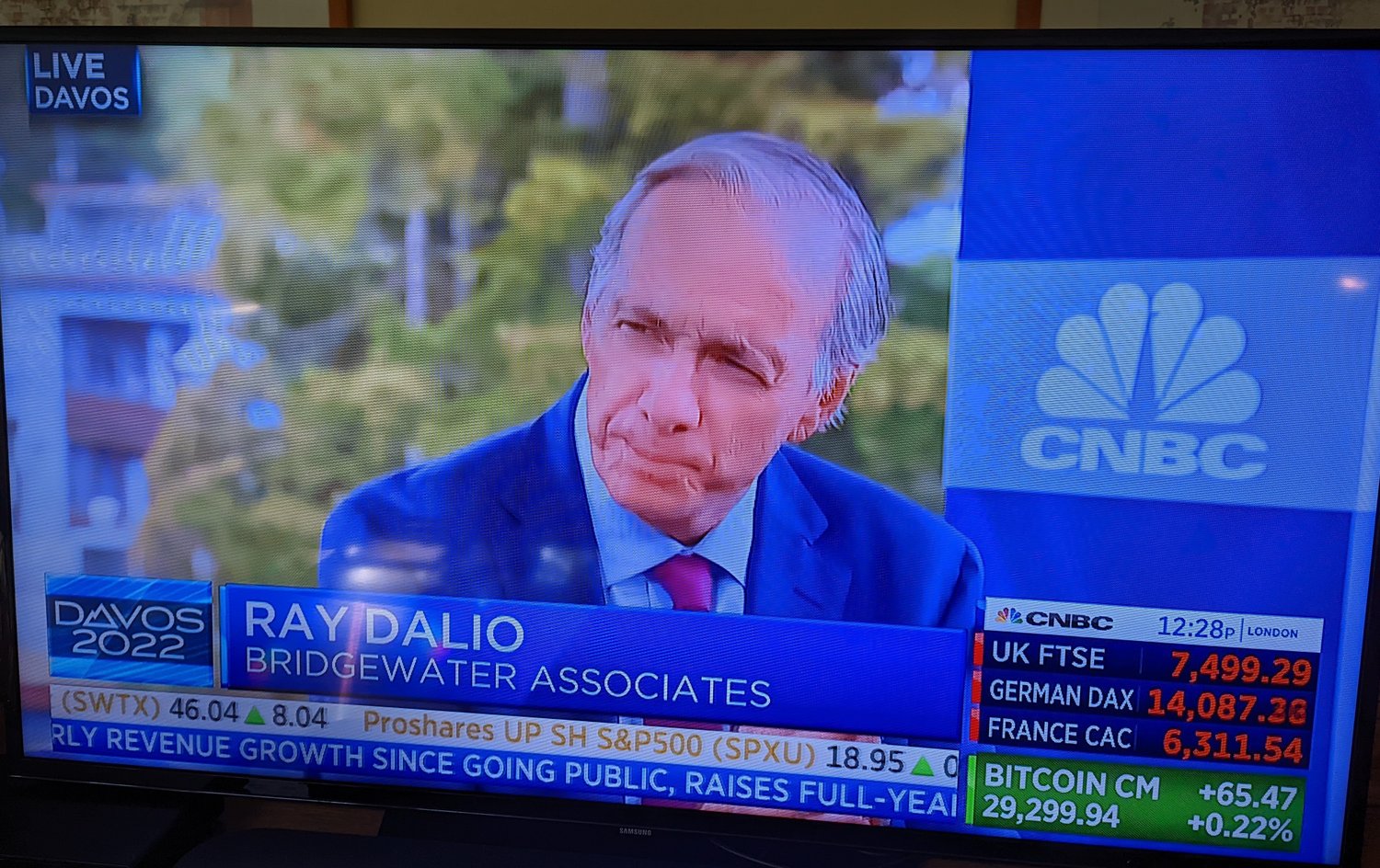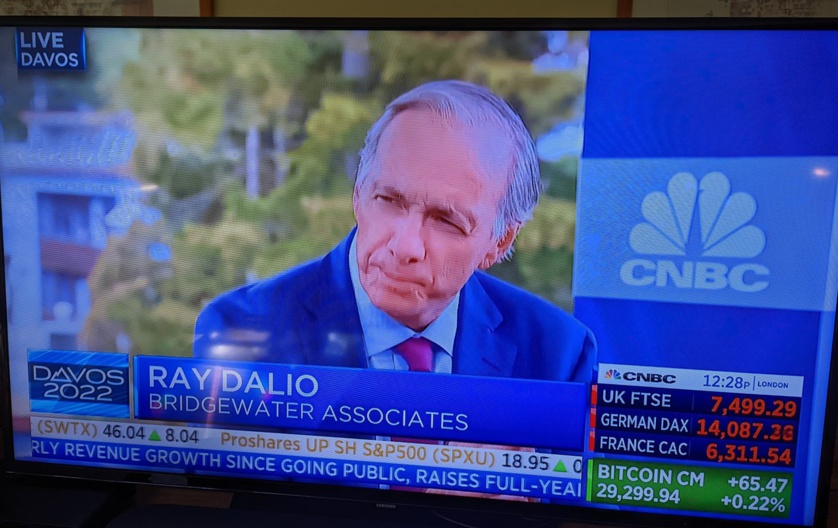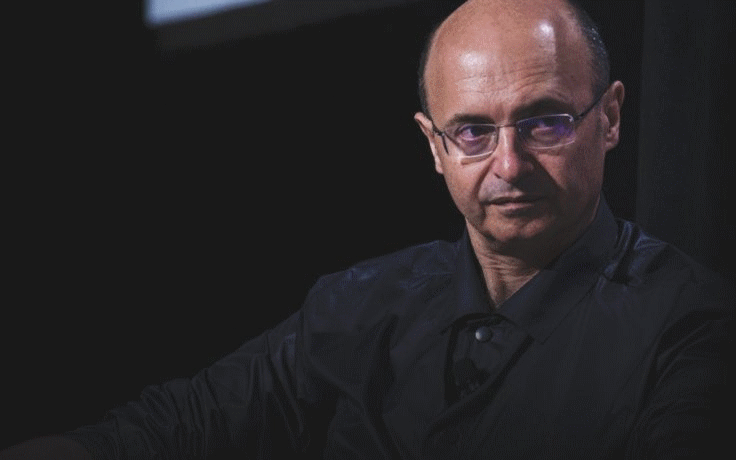Let’s beg the question - how relevant are traditional Wall Street fund managers as investors in the crypto sector?
My viewpoint is that we need fund managers that are long term believers and are committed because they have done their own original research. They should be able to understand crypto to the point where they are able to comprehend what the technology does, where it is going, and are able to form their own defendable (and original) thesis across the many emerging blockchain sectors. But do they?
For example, of the traditional investors that get it, Ray Dalio is one of them. In a CNBC interview this morning, he said that he sees Bitcoin, cryptocurrencies or digital gold, as part of the “new money” that is a medium of exchange and a store-hold of wealth that you could move between countries. He admitted that Bitcoin had made tremendous achievements over the past 11 years towards those goals.
Sadly, many other so-called crypto investors have a superficial knowledge pertaining to what they got into, and often haven't even used the technology themselves.
Fickle investors will flee their investments the minute there is a weakness or bad news, because they need to protect their capital, and will wait for the next momentum cycle.
Maybe, the crypto industry was too early for the proverbial "Here comes everybody".
Most current crypto investors have no real relationships with the projects they are investing in, except the relationship they have with the price chart. I doubt some of them even spoke to entrepreneurs directly.
Investing in crypto is not yet like investing in the stock market where companies are at a known stage of predictability in their business, and where valuation metrics are more easily quantifiable or visible. There is no such thing as a missed quarter that later corrects itself. Instead, the field is full of information asymmetry.
Traditional Money Managers Don’t Get It, Won’t Get It, Can’t Get it
Reality is that not all traditional fund managers will be able to fully comprehend, let alone believe in the crypto revolution. The grand-daddies of conservatism, Buffett and Munger have already spoken, and their views are the epitome of denial that there is something new here.
In part, the analogy of asking traditional fund managers to get into crypto is like asking a professional basketball player who has never heard of soccer to suddenly play that game. Imagine they would start saying things like:
- The net is too wide, that doesn’t make sense!
- You can’t touch the ball with your hands? That will never work.
- Why is the field so long and wide? It will be too tiring to go up and down both ends!
- Why are there 11 players? You can’t easily talk to each other.
- Why don’t you stop the clock if there is a whistle? That’s not fair.
Well, the rules of soccer are very different from those of basketball. And the type of players it attracts is different. Both games have tackling, intercepting, shooting, and blocking in common, but it doesn’t mean that an athletic basketball player that is willing to learn and adapt couldn’t play soccer if they wanted to. However, not all of them will be able to.
Taking the analogy one step further, imagine a sports regulator stepping in and saying: we’ve had the rules of basketball for years, all other sports must adapt to them.
What Matters is Who is Staying, Not Who is Leaving
During the UST/Terra debacle and overall crypto prices correction of mid-May, talking-head after talking-head went on CNBC exposing their ignorance of crypto and predicting the darkest scenarios about an industry they clearly never understood well enough. Most of them would be hard pressed to talk for more than 15 secs about what crypto really does in terms of the variety of use cases and state of practice.
In retrospect, it wouldn't be such a bad thing if some types of investors flee the crypto markets, as they get replaced by smarter ones who get the longer term view. What matters is who is staying. Developers, entrepreneurs, smart investors and dedicated users are all staying.
If the narrative shifts too hard towards prices, speculation and superficial involvements, instead of latching on the fundamentals of blockchain technology via a discriminating eye, we have lost the plot about what crypto is about.
It is mind boggling to see most coins (especially the L1 variety) move up and down almost at the same rate. Do these “investors” clearly have any clue about how different the top 10 L1 blockchains really are? For example, for the amount of weight it carries and share of transactions it commands, it is surprising that Ethereum's market dominance keeps hovering below the 20% level.
As long as most cryptocurrencies fall and rise in unison, and investors follow each other like sheep, this points to the fact that the market is full of investors that are not very sophisticated nor discriminating. The crypto industry will not be able to break free of its own if it continues to be linked to the vagaries of the traditional markets.
In the next post, I will debunk the theory of crypto-to-market coupling…or decoupling.
My viewpoint is that we need fund managers that are long term believers and are committed because they have done their own original research. They should be able to understand crypto to the point where they are able to comprehend what the technology does, where it is going, and are able to form their own defendable (and original) thesis across the many emerging blockchain sectors. But do they?
For example, of the traditional investors that get it, Ray Dalio is one of them. In a CNBC interview this morning, he said that he sees Bitcoin, cryptocurrencies or digital gold, as part of the “new money” that is a medium of exchange and a store-hold of wealth that you could move between countries. He admitted that Bitcoin had made tremendous achievements over the past 11 years towards those goals.
Sadly, many other so-called crypto investors have a superficial knowledge pertaining to what they got into, and often haven't even used the technology themselves.
Fickle investors will flee their investments the minute there is a weakness or bad news, because they need to protect their capital, and will wait for the next momentum cycle.
Maybe, the crypto industry was too early for the proverbial "Here comes everybody".
Most current crypto investors have no real relationships with the projects they are investing in, except the relationship they have with the price chart. I doubt some of them even spoke to entrepreneurs directly.
Investing in crypto is not yet like investing in the stock market where companies are at a known stage of predictability in their business, and where valuation metrics are more easily quantifiable or visible. There is no such thing as a missed quarter that later corrects itself. Instead, the field is full of information asymmetry.
Traditional Money Managers Don’t Get It, Won’t Get It, Can’t Get it
Reality is that not all traditional fund managers will be able to fully comprehend, let alone believe in the crypto revolution. The grand-daddies of conservatism, Buffett and Munger have already spoken, and their views are the epitome of denial that there is something new here.
In part, the analogy of asking traditional fund managers to get into crypto is like asking a professional basketball player who has never heard of soccer to suddenly play that game. Imagine they would start saying things like:
- The net is too wide, that doesn’t make sense!
- You can’t touch the ball with your hands? That will never work.
- Why is the field so long and wide? It will be too tiring to go up and down both ends!
- Why are there 11 players? You can’t easily talk to each other.
- Why don’t you stop the clock if there is a whistle? That’s not fair.
Well, the rules of soccer are very different from those of basketball. And the type of players it attracts is different. Both games have tackling, intercepting, shooting, and blocking in common, but it doesn’t mean that an athletic basketball player that is willing to learn and adapt couldn’t play soccer if they wanted to. However, not all of them will be able to.
Taking the analogy one step further, imagine a sports regulator stepping in and saying: we’ve had the rules of basketball for years, all other sports must adapt to them.
What Matters is Who is Staying, Not Who is Leaving
During the UST/Terra debacle and overall crypto prices correction of mid-May, talking-head after talking-head went on CNBC exposing their ignorance of crypto and predicting the darkest scenarios about an industry they clearly never understood well enough. Most of them would be hard pressed to talk for more than 15 secs about what crypto really does in terms of the variety of use cases and state of practice.
In retrospect, it wouldn't be such a bad thing if some types of investors flee the crypto markets, as they get replaced by smarter ones who get the longer term view. What matters is who is staying. Developers, entrepreneurs, smart investors and dedicated users are all staying.
If the narrative shifts too hard towards prices, speculation and superficial involvements, instead of latching on the fundamentals of blockchain technology via a discriminating eye, we have lost the plot about what crypto is about.
It is mind boggling to see most coins (especially the L1 variety) move up and down almost at the same rate. Do these “investors” clearly have any clue about how different the top 10 L1 blockchains really are? For example, for the amount of weight it carries and share of transactions it commands, it is surprising that Ethereum's market dominance keeps hovering below the 20% level.
As long as most cryptocurrencies fall and rise in unison, and investors follow each other like sheep, this points to the fact that the market is full of investors that are not very sophisticated nor discriminating. The crypto industry will not be able to break free of its own if it continues to be linked to the vagaries of the traditional markets.
In the next post, I will debunk the theory of crypto-to-market coupling…or decoupling.
About William Mougayar
William wrote the preface to Laurent Leloup's book: Blockchain, la révolution de la confiance.
William Mougayar is a Toronto-based blockchain investor, researcher, blogger, and best-selling author of The Business Blockchain (Wiley, 2016, translated in 10 languages). He is a direct participant in the crypto-technology market, working alongside startups, entrepreneurs, pioneers, innovators, creators, enterprise executives and practitioners. He has been described as the most sophisticated blockchain business thinker.
William is currently the Executive Chairman for the Kin Foundation, and a Board Member at Blockchain Valley Ventures (Switzerland). William is also the founder/producer of The Token Summit, and manages WMX, an ICONOMI cryptocurrency index. He also created OnCoins.org.
Some of William's early investments include Dapper Labs (creators of CryptoKitties), Blockstack, Ethereum, Filecoin, Kin, OpenBazaar and Roll.
He was formerly a Special Advisor to the Ethereum Foundation, Board Member at Stratumn (France) and an advisory board member for OMERS Ventures (Canada), and Coin Center. Previously, he held senior positions at Hewlett-Packard, Cognizant and AberdeenGroup, and has founded 3 tech startups.
William is a graduate of the University of Washington, the University of Western Ontario Ivey School of Business, and attended the University of British Columbia Graduate Commerce School.
https://www.wmougayar.com/
William wrote the preface to Laurent Leloup's book: Blockchain, la révolution de la confiance.
William Mougayar is a Toronto-based blockchain investor, researcher, blogger, and best-selling author of The Business Blockchain (Wiley, 2016, translated in 10 languages). He is a direct participant in the crypto-technology market, working alongside startups, entrepreneurs, pioneers, innovators, creators, enterprise executives and practitioners. He has been described as the most sophisticated blockchain business thinker.
William is currently the Executive Chairman for the Kin Foundation, and a Board Member at Blockchain Valley Ventures (Switzerland). William is also the founder/producer of The Token Summit, and manages WMX, an ICONOMI cryptocurrency index. He also created OnCoins.org.
Some of William's early investments include Dapper Labs (creators of CryptoKitties), Blockstack, Ethereum, Filecoin, Kin, OpenBazaar and Roll.
He was formerly a Special Advisor to the Ethereum Foundation, Board Member at Stratumn (France) and an advisory board member for OMERS Ventures (Canada), and Coin Center. Previously, he held senior positions at Hewlett-Packard, Cognizant and AberdeenGroup, and has founded 3 tech startups.
William is a graduate of the University of Washington, the University of Western Ontario Ivey School of Business, and attended the University of British Columbia Graduate Commerce School.
https://www.wmougayar.com/
No Offer, Solicitation, Investment Advice, or Recommendations
This website is for informational purposes only and does not constitute an offer to sell, a solicitation to buy, or a recommendation for any security, nor does it constitute an offer to provide investment advisory or other services by FINYEAR.
No reference to any specific security constitutes a recommendation to buy, sell or hold that security or any other security.
Nothing on this website shall be considered a solicitation or offer to buy or sell any security, future, option or other financial instrument or to offer or provide any investment advice or service to any person in any jurisdiction.
Nothing contained on the website constitutes investment advice or offers any opinion with respect to the suitability of any security, and the views expressed on this website should not be taken as advice to buy, sell or hold any security. In preparing the information contained in this website, we have not taken into account the investment needs, objectives and financial circumstances of any particular investor.
This information has no regard to the specific investment objectives, financial situation and particular needs of any specific recipient of this information and investments discussed may not be suitable for all investors.
Any views expressed on this website by us were prepared based upon the information available to us at the time such views were written. Changed or additional information could cause such views to change.
All information is subject to possible correction. Information may quickly become unreliable for various reasons, including changes in market conditions or economic circumstances.
No reference to any specific security constitutes a recommendation to buy, sell or hold that security or any other security.
Nothing on this website shall be considered a solicitation or offer to buy or sell any security, future, option or other financial instrument or to offer or provide any investment advice or service to any person in any jurisdiction.
Nothing contained on the website constitutes investment advice or offers any opinion with respect to the suitability of any security, and the views expressed on this website should not be taken as advice to buy, sell or hold any security. In preparing the information contained in this website, we have not taken into account the investment needs, objectives and financial circumstances of any particular investor.
This information has no regard to the specific investment objectives, financial situation and particular needs of any specific recipient of this information and investments discussed may not be suitable for all investors.
Any views expressed on this website by us were prepared based upon the information available to us at the time such views were written. Changed or additional information could cause such views to change.
All information is subject to possible correction. Information may quickly become unreliable for various reasons, including changes in market conditions or economic circumstances.
Laurent Leloup : Conseil marketing & stratégie new techs
Finyear : Future Finance, Fintech, DeFi | Daily News
Chaineum : The DeFi Company
HealthTech.Finance : Healthtech Investment Bank
Gryn.Tech : Decarbonation Solutions
Tickando : Financement participatif sur blockchain
Finyear : Future Finance, Fintech, DeFi | Daily News
Chaineum : The DeFi Company
HealthTech.Finance : Healthtech Investment Bank
Gryn.Tech : Decarbonation Solutions
Tickando : Financement participatif sur blockchain
Autres articles
-
NFT Factory s'envisage en mode itinérant avant de se ré-ancrer au coeur de la capitale
-
La startup française, Multis s'abrite désormais au sein de l'entreprise suisse, Safe,
-
Lazard x Elaia : c'est signé !
-
Pixpay, les ados et Shein : quand la fintech se penche sur la conscience écolo des ados
-
Nomination | Société Générale annonce l'arrivée d'Antoine Jacquemin au poste de Responsable Mondial de la vente Taux, Change et Placement aux entreprises au sein des Activités de Marché


















